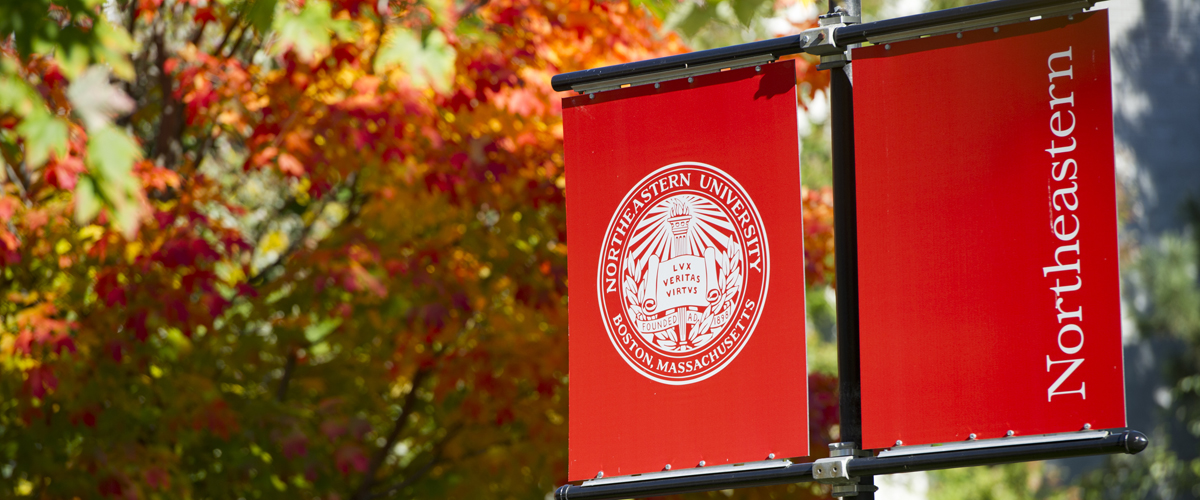by Gwendolyn Schanker
Northeastern University’s Center for Renewable Energy Technology (NUCRET) is a hub of productivity – in more ways than one. On the third floor of the Egan Research Center, any number of nearly 20 students that work under faculty advisor Dr. Sanjeev Mukerjee can be found taking steps to develop fuel cells for more efficient energy use and storage.
Today’s fuel cells rely largely on expensive platinum catalysts, something Mukerjee and his students hope to change by exploring alternatives. They are also working to improve the efficiency of rechargeable batteries.
“This is a lab that facilitates clean and renewable energy,” Mukerjee said. “What we hope to accomplish is to bring about a revolution with electrochemical energy conversion and storage.”
The lab’s overarching goal is to move towards a more carbon neutral society by decreasing carbon output and increasing hydrogen output. Fourth-year BS/MS candidate Jenna Malley, a chemistry major and research assistant in Mukerjee’s lab, knows that it will be a long time before the work she’s doing is reflected in society. Still, she is continually inspired by the lab’s goals.
“Working towards a zero-carbon society is a very novel goal,” said Malley, who works in the lab anywhere from 20-40 hours a week and whose day-to-day tasks include running water splitting tests, or splitting water into its oxygen and hydrogen components. “It’s fascinating to know this is possible and is becoming more achievable.”
Todd Miller, also a BS/MS candidate in chemistry, first began working in the NUCRET lab after taking Mukerjee’s physical chemistry course.
“He often related the problems we were solving in class to the work in his lab,” Miller said. “Now I’m taking inorganic chemistry, I already have good background knowledge from what I’ve learned in the lab.”
By inviting students like Malley and Miller to participate in research in the NUCRET lab, Mukerjee has facilitated the continual growth of Northeastern’s undergraduate research environment.
“Increasingly, undergraduate education has started to involve an element of research,” Mukerjee said. “Research experience is important for building skills and maturity. When students go to the next stage of their education, they are far better prepared to analytically think a problem through, to break it down into its constituents, and to design experiments.
“It’s an aspirational shift,” he continued. “The future of the lab is to foster more interdisciplinary work across the university, and thereby give rise to new initiatives.”
He says student engagement is key to making that shift.
“The ability to ask the most fundamental questions is the first step,” Mukerjee said. “It starts with the fact that students want to show off to one another and say, ‘this is the cool stuff I did. What have you got?’”
Both Malley and Miller have had the chance to present their ongoing work to fellow students, faculty and colleagues. This year, both students presented at Northeastern’s Research, Innovation, and Scholarship Expo (RISE), and both will be acknowledged as coauthors on research papers that will come out of the lab within the next year or so.
“I love talking about my research at conferences like RISE because it’s not like I’m doing a pitch, it’s just a conversation,” Malley said. “Going to the conferences and presenting reassures me that I’m going into the right field.”
Working in the lab is also a mentorship opportunity. While Miller and Malley both describe being taken under the wing of the lab’s graduate students, they have also advised incoming undergraduates who are just acclimating to the fast-paced but collaborative atmosphere in the lab.
Miller has most recently served as a mentor to Andrew Freeman, a rising sophomore studying chemistry and mathematics. “It’s interesting to see just how much more I’ve learned from talking to Andrew and telling him about the lab,” Miller said.
Malley says that her experience in the lab has not only cemented her interest in pursuing renewable energy alternatives, it has also made her surer of her ability to do so.
“This lab has given me a lot more confidence in my ability as a researcher,” Malley said. “We’re treated at the same level as graduate students the second we walk in.”
After graduating from Northeastern in 2018, Miller will undertake a research position at the U.S. Army Soldier Systems Center in Natick, Massachusetts. The problem skills he is applying in Mukerjee’s lab are sure to come in handy.
“The biggest challenge I’ve had to overcome is figuring out how to fix things,” Miller said. “Once I finally get successful results, it’s the most gratifying feeling.”

